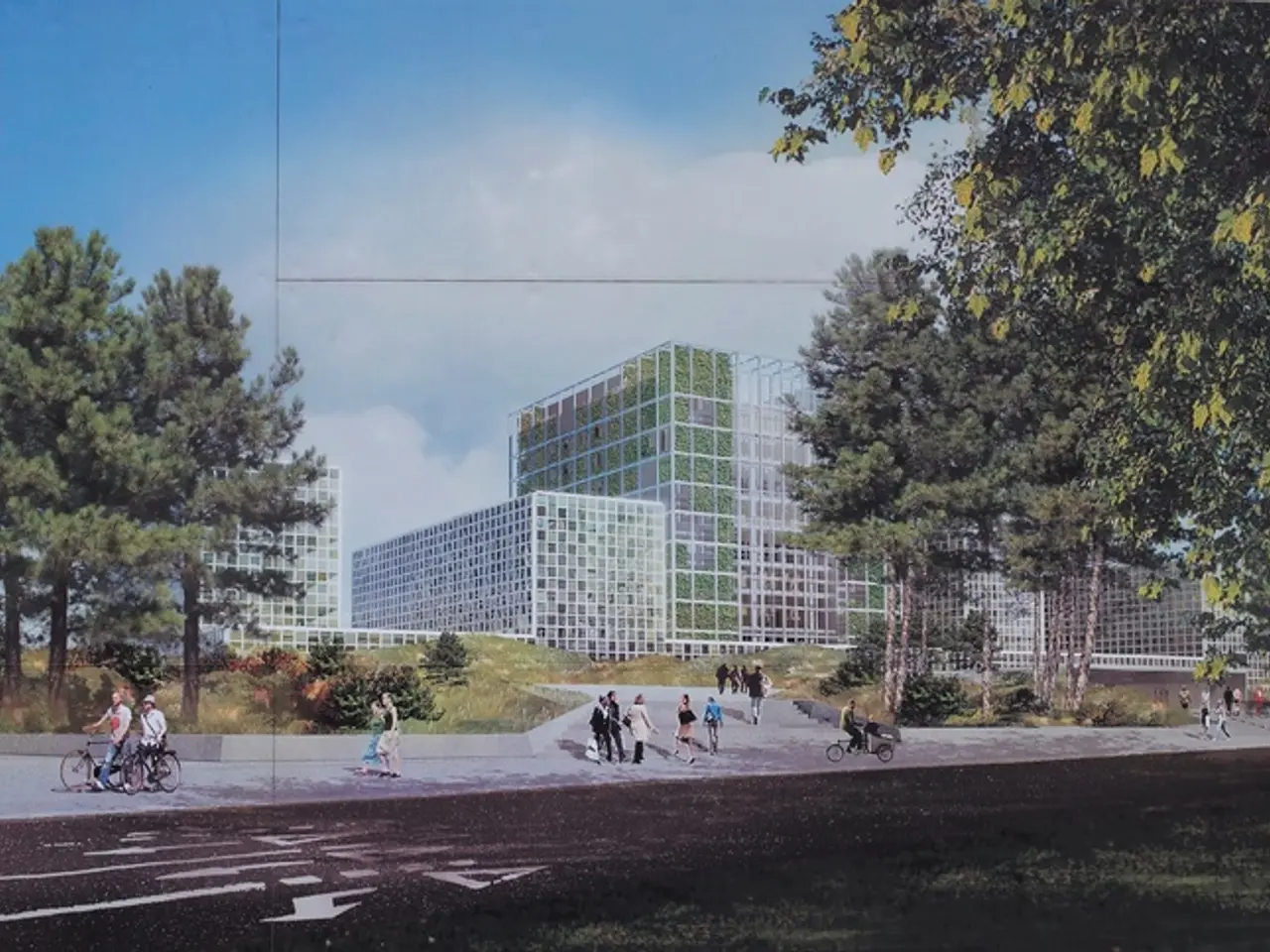Proposals have been put forth by the Commission.
In a recent county council meeting, the potential economic and societal impacts of accelerating Germany's coal phase-out in the Rhenish coal mining area were discussed. Currently, around 10,000 people are employed in open-cast mining in the region, with potentially many more jobs related to coal mining.
Economic Impacts
The current plan includes €40 billion in structural aid by 2038 for coal regions like the Rhenish area, focused on infrastructure, job creation, and research to soften economic shocks from coal plant closures. Accelerating the phase-out would require this aid and investment to be delivered sooner and possibly on a larger scale to manage a more rapid transition.
Key local employers like RWE are already shifting investments towards renewables, hydrogen, and bio-economy initiatives for economic diversification and long-term value creation. A faster coal exit could propel these investments but also intensify short-term economic disruption and capital needs.
Germany's broader energy transition targets aim for climate neutrality by 2045. An earlier coal phase-out supports these ambitions and may reduce avoided climate damages, which studies suggest economically outweigh the transition costs. However, Germany still relies heavily on fossil fuel imports and needs expanded renewable and hydrogen infrastructure to cover energy demand. Accelerating coal exit may pressure energy security and require more rapid renewable capacity build-out.
Societal Impacts
The Rhenish region’s workforce, historically dependent on coal mining and related industries, would face earlier job losses. Accelerated reskilling, social safety nets, and inclusive employment programs would be necessary to avoid heightened unemployment and social instability.
Structural change programs designed to enable a fair transition currently extend to 2038. Bringing forward milestones compresses adjustment timelines, potentially increasing uncertainty and stress for affected communities. Nevertheless, accelerated climate action could foster societal benefits such as improved public health from reduced pollution and alignment with national and European climate goals.
Addressing the Challenges
Infrastructure development is part of the goals, with the state and RWE set to own land that will be developed in the region. The county and municipalities will be involved in the development of former power plant sites and RWE-owned land. Cooperation with universities and research institutions is also part of the goals.
The lakes in the region will be filled with groundwater and Rhine water after the end of coal, with the necessary conditions for their timely filling and the restoration of natural groundwater conditions being discussed. After coal, three large lakes are planned for the region to be used for tourism.
The promotion of e-mobility is contributing to a sharp rise in electricity demand, which is already the highest in all 27 EU countries. The county council demands energy security, with electricity being a key concern due to current reliance on coal-fired power plants.
The goals cover site development, land use, and cooperation with universities and research institutions. The county council's latest meeting focuses on the potential economic and societal impacts if Germany's coal phase-out is accelerated from 2038 to the end of this decade.
In summary, while accelerating the coal phase-out by 8 years in the Rhenish area aligns well with climate targets and long-term economic sustainability, it requires intensified and expedited financial aid, infrastructure development, and social programs to responsibly manage economic disruptions and workforce transitions in a historically coal-dependent region. The speed and scale of renewable and hydrogen infrastructure expansion would also need to increase to ensure stable energy supply amid the coal exit. This represents a challenging but potentially rewarding acceleration of structural and societal transformation.
- The discussion in the recent county council meeting included potential implications of political decisions regarding the accelerated coal phase-out in the Rhenish area, specifically focusing on economic and societal impacts in the context of overall environmental-science objectives and general-news.
- The quicker coal phase-out in the Rhenish area, if brought forward to the end of this decade, not only has environmental benefits but also requires strategic political measures such as increased financial aid, expedited infrastructure development, and comprehensive social programs to support economic sustainability and workforce transitions in line with contemporary science and general-news perspectives.




